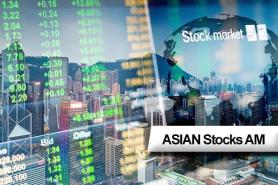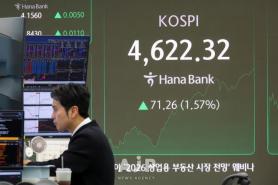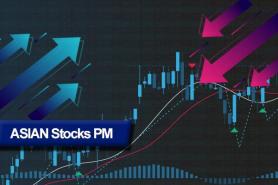![KOSPI index displayed at Korea Exchange in Seoul on Nov. 3. [Photo=Yonhap]](https://image.ajunews.com/content/image/2025/11/05/20251105062128300566.jpg)
SEOUL, November 05 (AJP) - South Korea’s stock market appears to be entering the early stages of what analysts are calling an artificial intelligence–driven “supercycle,” as investors pour into semiconductor, robotics, and infrastructure shares amid growing optimism about the country’s role in the global AI boom.
The rally gained momentum following recent international events such as the APEC summit and Nvidia’s AI conference, both of which underscored the long-term potential of the technology.
The benchmark KOSPI index briefly surpassed 4,200 on Nov. 3, hitting an all-time high, before easing to close at 4,121.74 on Nov. 4, down 100.13 points, or 2.37 percent. Even so, many analysts see the pullback as a pause in a broader upward trend.
Much of the enthusiasm centers on South Korea’s AI ecosystem, particularly in semiconductor and data center infrastructure. Shares of SK hynix have surged nearly 183 percent this year, while Samsung Electronics is up 83 percent and Naver has gained about 41 percent — a reflection of booming demand for AI computing capacity.
The rise of AI data centers has also fueled gains among power and equipment suppliers.
HD Hyundai Electric’s stock has soared about 143 percent on demand for high-voltage transformers, while Iljin Electric has advanced 118 percent. Government-backed domestic data center projects have reached record order backlogs, feeding investor optimism that the momentum will continue.
In the “physical AI” sector, companies linked to robotics and autonomous systems are also reaping benefits. Doosan Robotics’ shipments of collaborative robots are expected to climb 50 percent this year, lifting its shares by more than 84 percent. Rainbow Robotics, known for its AI-powered robotic arms, is up about 80 percent, while Hyundai Autoever has gained nearly 58 percent on hopes for its autonomous driving software.
Analysts remain bullish on the outlook. Kim Byung-yeon, an analyst at NH Investment & Securities, projected that the KOSPI could reach 5,000 by 2026, citing structural shifts in industrial competitiveness rather than low interest rates.
KB Securities offered a similar forecast, also setting a 2026 target of 5,000 and estimating that global AI data center investments could exceed $1 trillion by 2028.
That optimism stands in contrast to mounting concern in the United States about an “AI bubble,” where companies such as Google and OpenAI face scrutiny over soaring R&D costs and potential overinvestment. According to a recent Bloomberg report, U.S. technology giants could collectively spend more than $1 trillion on AI development by 2025 — a pace that some analysts say risks overheating.
South Korea’s approach, by contrast, has emphasized state-backed infrastructure and “green AI” initiatives designed to mitigate energy strain and foster long-term stability.
Unlike in the U.S., where investor enthusiasm often outpaces corporate performance, South Korea’s AI boom has been accompanied by measurable earnings growth.
SK hynix reported a 61.9 percent year-on-year increase in third-quarter operating profit, to 11.38 trillion won ($8.2 billion), driven by sales of high-bandwidth memory chips. Samsung’s shipments of AI server processors rose 1.8 times from the previous quarter, while Naver’s AI cloud business expanded its utilization rate beyond 20 percent, strengthening its recurring revenue base.
Analysts say the country’s AI momentum is rooted less in hype than in hardware for now — and in the structural shifts that could redefine South Korea’s role in the global technology supply chain.
* This article, published by Aju Business Daily, was translated by AI and edited by AJP.
Copyright ⓒ Aju Press All rights reserved.



